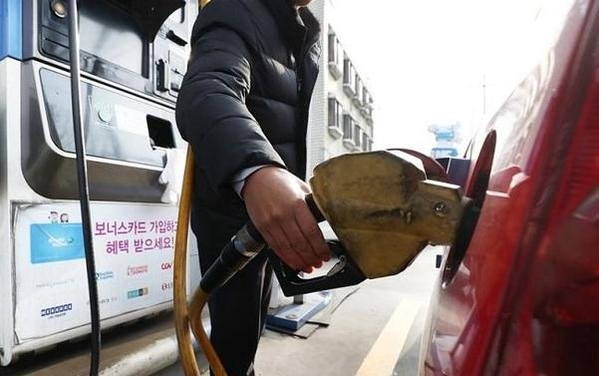Input 2021.01.16 16:24 | Revision 2021.01.16 17:00
According to Korea National Oil Corporation’s Oil Price Information Service Opinet on the 16th, the average price of gasoline at gas stations nationwide in the second week of January was 1439.3 won per liter, up 9.1 won from last week.

The weekly increase has increased from 1.4 won per liter to 8.2 won, 12.2 won, 18.6 won, and 31.7 won per liter, and then decreases to 24 won, 16.7 won, and 9.1 won.
Gasoline prices in Seoul, the nation’s highest priced area, rose 10.0 won to 1515.0 won per liter from last week, 75.7 won higher than the national average. Seoul is the only region in the country that exceeds 1,500 won. Gasoline prices in Gyeongnam, the lowest priced area, rose 11.6 won from last week to 1422.6 won per liter, which is 16.6 won lower than the national average.
By brand, gasoline at GS Caltex gas stations was the most expensive at 1448.9 won per liter, and gasoline at affordable gas stations was the cheapest at 1400.2 won per liter.
The price of diesel at gas stations nationwide also recorded 1239.8 won per liter, up 8.8 won from last week.
International oil prices also continued to rise from last week. The price of Dubai oil, which is the standard for domestic crude oil, was 55.8 dollars per barrel, up 2.7 dollars from the previous week. International gasoline prices rose 2.9 dollars from the previous week to 60.0 dollars per barrel, and international automobile diesel prices rose 3.0 dollars to 60.9 dollars per barrel.
The Korea Petroleum Corporation said, “International oil prices are on the rise due to the advance notice of the US economic stimulus, Saudi Arabia’s additional production cuts in February and March, the increase in Chinese crude oil imports, and the continuing conflict between the US and Iran.”
